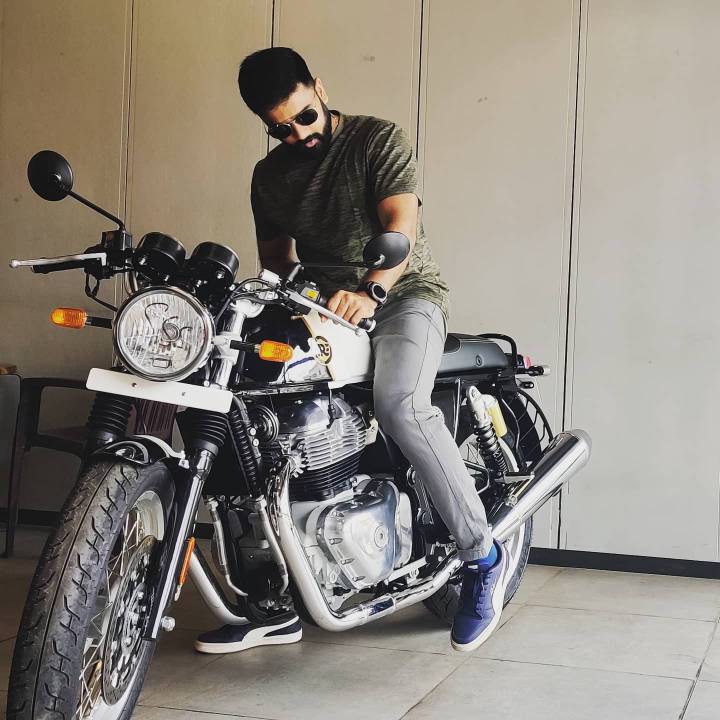Dr Nagarjun (Arjun) B Gowda is an Indian Administrative Service (IAS) Officer who secured an All Indian Rank (AIR) of 418 in the Union Public Service Commission’s (UPSC) Civil Service Examination (CSE) in 2018.
Having prepared for the exams while working as a full-time resident doctor, Arjun helps aspirants understand how best one can manage time, make a schedule and follow it. “If I had the means of enrolling for coaching, I would have chosen it. Given that my economic condition at the time was not great, I chose self-study. In hindsight, after clearing the examination I can say that it is possible to do so with self-study,” says Dr Arjun.
During the time when Dr Arjun was preparing for the UPSC CSE, he was working as a Resident at Mandya Institute of Medical Sciences in Karnataka. He was required to be at the hospital from 9.30 am until 4.30 pm. He would then dedicate a minimum of six hours for his CSE preparation.
In conversation with The Better India, Dr Arjun shares some of the techniques that worked for him.
Chose a job that permits you time to study:
“If you are a serious aspirant and have a single-minded approach to clearing the examination, my advice to you would be to pick a job that gives you ample time for preparation. Look at the job as a means of earning a sustenance and not necessarily as one to make money,” he says. A very hectic job profile might end up paying well but will leave you with little to no time for your preparation. Therefore, he says, choosing a job is very critical to your preparatory journey.
Find ways of making time to study:

“As an aspirant who is working and preparing simultaneously, making the most of the time on hand is extremely important,” says Dr Arjun, who would spend an hour each morning before he left for the hospital going through the newspaper.
No matter how little time you have on hand, Dr Arjun urges you to spend it towards preparation. “Get into the habit of using all available time to read and gather as much information as possible,” he says.
Time is of the essence – do not waste it:
“Being disciplined and having a workable schedule is the key to success in this examination,” he says. During the break hours at work, Dr Arjun would revise and go through current affairs material. He says, “On some days I would also leave the newspaper editorial to be read during some free time at work. I would pick topics and books that I have already prepared and use the free time at work only for revising the same.”
Leverage technology to your advantage:
Dr Arjun mentions subscribing to a few news apps that helped him a great deal. “I had set my preferences to the topics I wanted to stay updated about on news apps. Even if I had a few minutes to spare, I would read an article or two from these apps,” he says. However, when it comes to attempting test papers, he urges aspirants to follow the traditional pen and paper method to be able to get a feel of what the actual examination will be like.
Practise solving test series:
“Getting into the habit of solving test series will help aspirants assess how strong their command over the topic is. It is important to not just solve the test papers but analysing mistakes is equally essential,” he says. There are various coaching centres and forums that offer test series. Some of them include, Vision, Forum IAS, Insights IAS and IAS Baba. Choose one that suits your requirement the most.
Find ways to unwind:

“While this may be difficult, if you are working full time and preparing, it becomes necessary to find avenues to unwind every now and then,” he says. Dr Arjun says that he would watch a movie once every fortnight and the second half of every Sunday was kept free for him to meet friends, go out and just unwind without having to think about preparation and the impending examination. “Even on a daily basis, from 6.30 pm to 7.00 pm I would take a small tea break. This was sacrosanct and nothing impacted this break,” he adds.
In conclusion, he says, “If you feel confident of grasping topics well, then self-study is a great option for you. However, if you feel you need help with certain concepts and topics, considering a coaching forum might be beneficial. Weigh the pros and cons before you make that decision.”
Resource list used by Dr Arjun:
History – Class 6 to Class 12 NCERT textbook, Modern History by Spectrum and Ancient and Medieval History from Class 11 Tamil Nadu NCERT textbook.
Geography – Class 6 to Class 12 NCERT textbook and G C Leong’s Certificate Physical and Human Geography.
Polity- Indian Polity by Lakshmikanth
Economy – Class 9 to Class 12 NCERT textbook and the latest edition of Indian Economy by Ramesh Singh.
Arts and Culture – Indian Art and Culture by Nitin Singhania and Class 11 NCERT textbook.
Current Affairs – The Hindu (newspaper) along with any monthly current affairs magazine. Towards the end of the preparation journey aspirants can also refer to PT (Polity + Economy + Environment + International Relations) 365.
Miscellaneous reading material – Oxford school atlas for maps, Budget, Economic survey, Yojana monthly magazine and a summary of the India Year Book.
(Edited by Yoshita Rao)
No comments:
Post a Comment